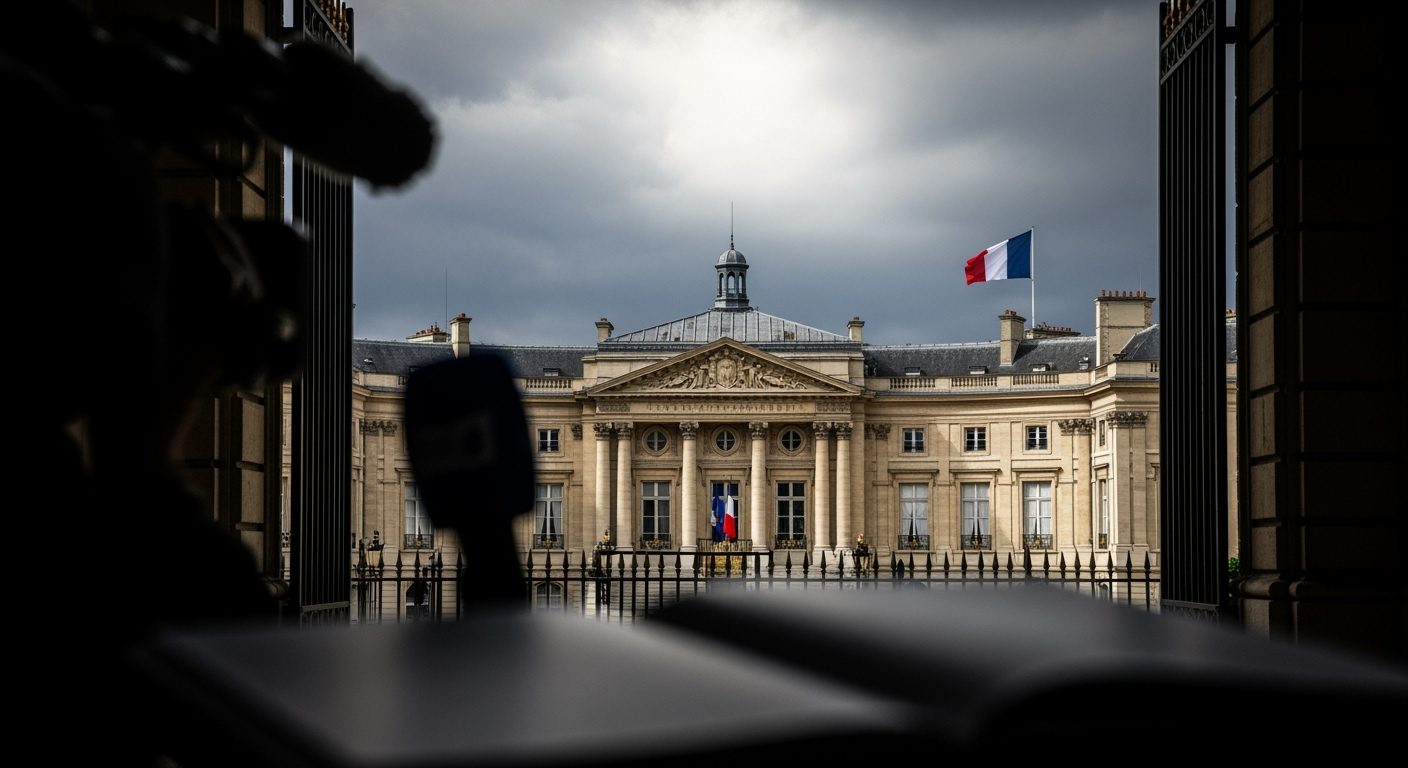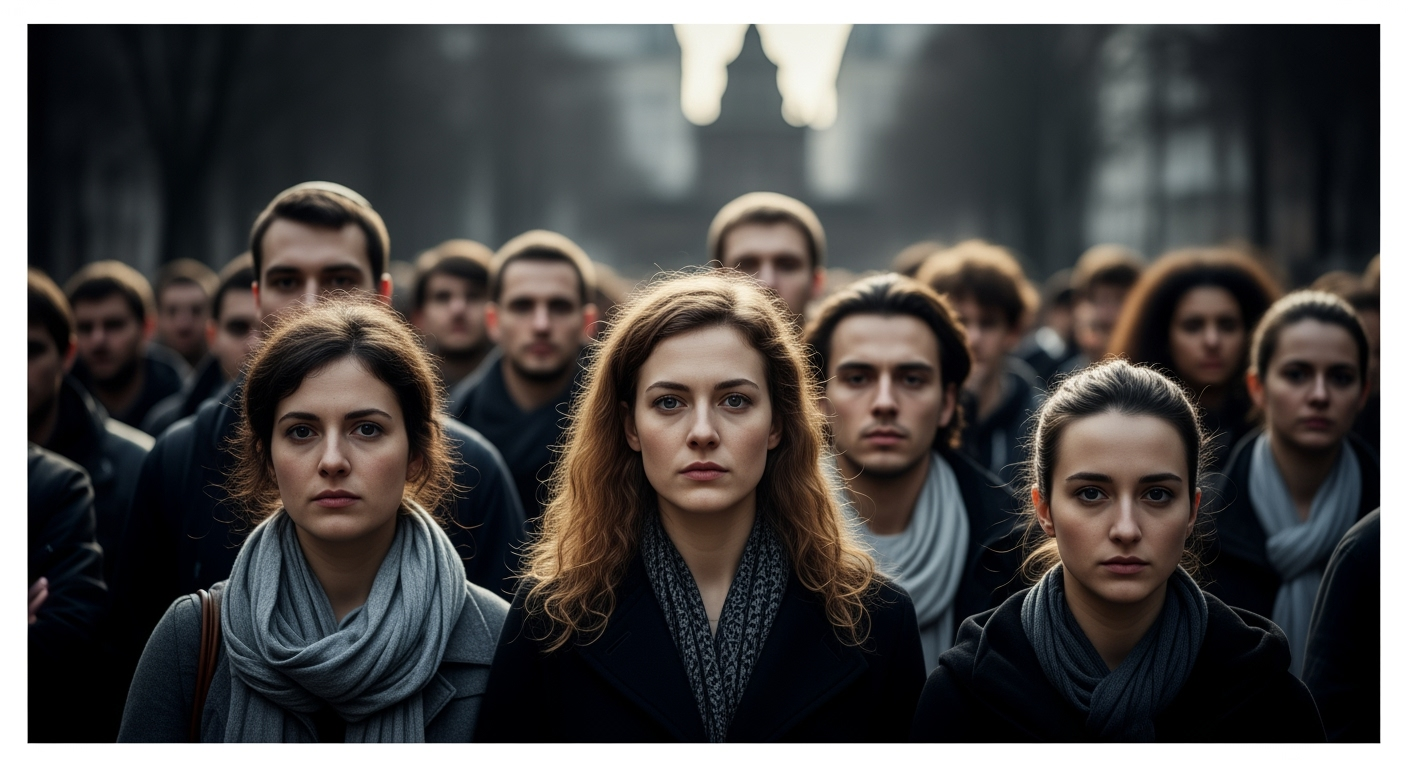Related Articles

Ecuadorian Government Decries 'Assassination Attempt' on President Noboa Amid Escalating Protests

French Political Stalemate Nears Resolution as New Prime Minister Expected Within 48 Hours





Berlin, Germany – Two years after the devastating Hamas attacks of October 7, 2023, Germany finds itself confronting a stark and disquieting reality: a dramatic resurgence of antisemitism. Friedrich Merz, a prominent figure in German politics, has issued a powerful warning, stating that the nation is experiencing a "new wave" of Jew-hatred, appearing in both old and new guises, and manifesting with increasing brazenness and violence across society.
The alarms raised by Merz underscore a deeply troubling trend that has seen antisemitic incidents skyrocket, fundamentally altering the sense of security for Jewish communities within Germany. His emotional appeal for a united front against this growing threat highlights the profound challenges facing a nation acutely aware of its historical responsibility.
Merz's recent pronouncements, made around the second anniversary of the October 7 attacks and during events marking the 75th anniversary of the Central Council of Jews, have been unequivocal. He declared that since that date, antisemitism has "become louder, more open, more brazen, more violent almost every day". This sentiment reflects a broader consensus among monitoring organizations and Jewish community leaders that the October 7 attacks served as a watershed moment, significantly escalating the prevalence and intensity of antisemitic sentiment in Germany.
Speaking at the reopening of the historic Reichenbachstrasse Synagogue in Munich, Merz, visibly moved, expressed his profound shame at the resurgence of antisemitism, recalling the inhuman crimes committed against Jews by the Nazis. He vowed to "declare war on all forms of old and new antisemitism in Germany on behalf of the entire federal government". His remarks emphasized that criticism of Israel is increasingly being used as a pretext for spreading "the poison of antisemitism" and that such rhetoric is becoming normalized.
The warnings are substantiated by chilling statistics. The Federal Association of Research and Information on Antisemitism (RIAS) documented a record 8,627 antisemitic incidents in Germany in 2024, marking an 80% increase over the previous year's total. This translates to approximately 24 incidents per day, or one every hour. These figures represent the highest annual number ever recorded by the watchdog, which has been tracking such incidents nationally since 2018.
Following the October 7 attacks, the spike was particularly acute. RIAS reported 2,787 antisemitic incidents between October 7, 2023, and the end of that year alone, surpassing the total for the entire preceding year. The Federal Criminal Police Office (BKA) also noted a significant rise, recording 1,047 antisemitic crimes in the first three months of 2025 alone. These incidents range from verbal harassment and property damage to physical assaults and even extreme violence, including two Islamist terrorist attacks in 2024 that resulted in fatalities and injuries.
The contemporary landscape of antisemitism in Germany exhibits a distressing array of forms. Merz specifically criticized the ideological tests and marginalization faced by Jewish and Israeli artists solely due to their origins or faith, citing the cancellation of a concert led by Israeli chief conductor Lahav Shani as a stark example. Beyond cultural spheres, antisemitism is increasingly visible in public spaces, educational institutions, and online platforms.
Reports indicate a rise in rhetoric that actively downplays the Holocaust, equates Auschwitz with Gaza, glorifies terrorism as resistance, and uses Hamas symbols. In a particularly alarming trend, some narratives portray Jews as "the new Nazis". Jewish individuals are increasingly experiencing hostility and threats in their immediate surroundings, at work, in educational settings, and across social media. Furthermore, Merz highlighted that a considerable number of recent immigrants were socialized in countries where antisemitism and hatred of Israel are virtually state doctrine, a statement that has sparked controversy.
The escalating threat has profoundly impacted Jewish life in Germany. The Central Council of Jews in Germany reports that many Jews have experienced a marked rise in antisemitism since October 7, 2023. The feeling of constant threat and hostility has led many to reconsider their public Jewish identity, with some hiding their Jewishness even in cosmopolitan cities like Berlin. There is growing concern about whether a free and safe life as Jews will be possible in Germany in the future, with some members of the community contemplating emigration.
Jewish community life now frequently takes place under conditions of maximum security, a reality Merz hopes will one day change, expressing a wish that Jewish life in Germany will no longer require police protection. His pledge extends to ensuring that "Jewish children must be able to grow up without fear".
Germany's steadfast commitment to combating antisemitism is enshrined in its post-Holocaust national identity. Merz's emotional remarks and his declaration of "war" against this prejudice underscore the gravity with which the German leadership views this challenge. The country's historical responsibility for the Nazi Holocaust forms the bedrock of its close ties with Israel and its unwavering stance against antisemitism, a policy known as the "Staatsraison".
Despite this deep-seated commitment, the recent surge demonstrates that antisemitism remains a persistent and evolving threat. The battle against it requires vigilance across all facets of society – from political leadership to civil society and law enforcement. As Germany confronts this "new wave," the urgency to protect its Jewish citizens and uphold the foundational principle of "never again" has become more critical than ever. The calls from political leaders and Jewish community representatives emphasize that combating antisemitism is not merely a matter of security, but a vital struggle for the soul of the nation.